How I Feel: Navigating Emotions in a Complex World
How I Feel: Navigating Emotions in a Complex World
Feelings shape our lives in countless ways. They affect our choices, Relationships, and overall well-being.
Learning to recognize and express your emotions is a key part of emotional intelligence.
Many people struggle to put their feelings into words. It’s common to feel confused or overwhelmed by emotions.
But taking time to check in with yourself can help you gain Clarity. Tools like mood trackers and emotion wheels can guide you in naming what you’re experiencing.
Dr. Marc Brackett, founder of the Yale Center for Emotional Intelligence, suggests asking yourself “How am I feeling?” several times a day. This simple practice can boost your self-awareness and help you respond to situations more effectively.
This blog explores how to tune into your emotions, and how to better understand yourself and others.
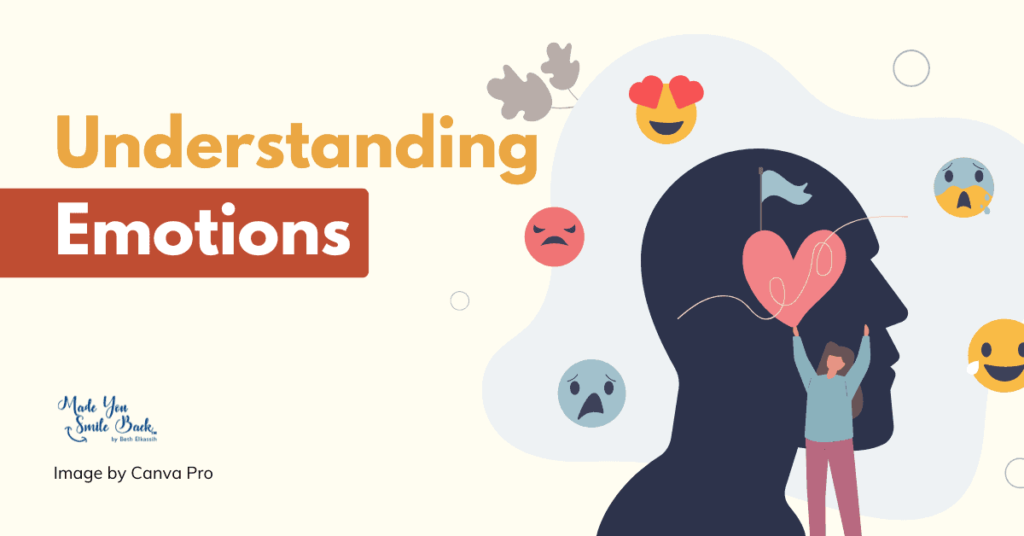
Understanding Emotions
Emotions are complex experiences that affect how you feel and act. They play a big role in your daily life and relationships.
The Nature of Emotions
Emotions are your body’s way of responding to events and situations. They involve changes in your thoughts, feelings, and physical reactions.
When you feel an emotion, your brain releases chemicals that affect your whole body.
Emotions can be short-lived or last for a while. They range from mild to intense. Some emotions feel good, while others are hard to deal with.
Your emotions give you important information. They can:
• Tell you what you need
• Help you connect with others
• Warn you of danger
• Guide your decisions
Recognizing your emotions is a key part of emotional intelligence. This skill helps you understand yourself and others better.
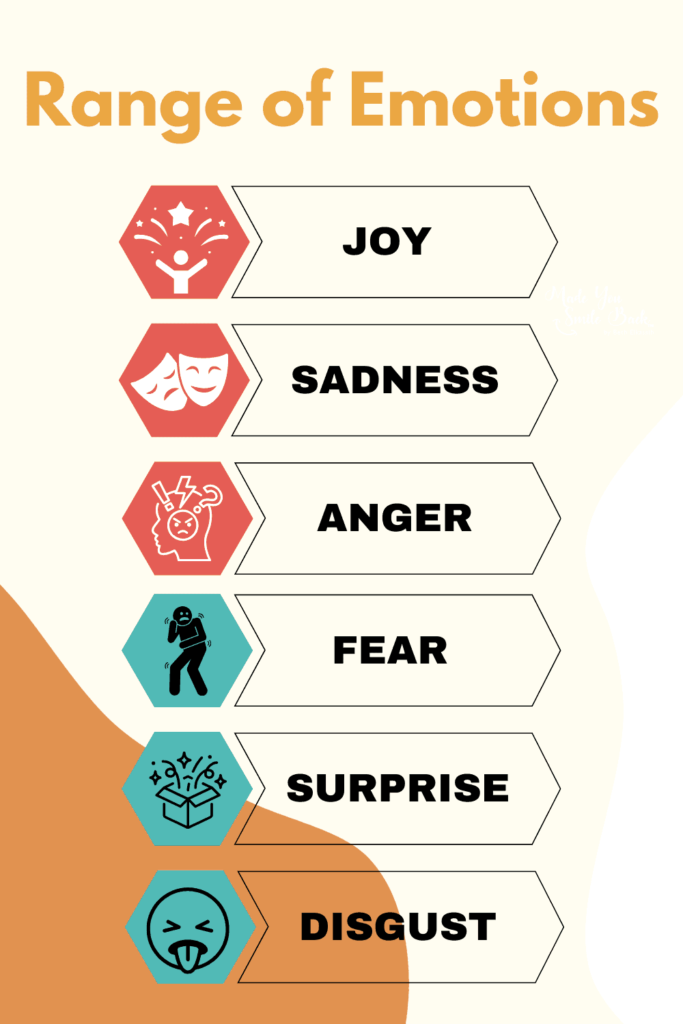
Range of Emotions
You can feel many different emotions. Some basic ones are:
• Joy
• Sadness
• Anger
• Fear
• Surprise
• Disgust
These mix to create more complex feelings. For example, you might feel both excited and nervous about a new job.
A mood meter can help you track your emotional state. It shows emotions on two scales: pleasant to unpleasant, and high to low energy.
Your mood can change throughout the day. Factors like Sleep, food, and Stress affect how you feel.
Learning to name your emotions helps you understand them better. This can improve how you handle your feelings and react to situations.
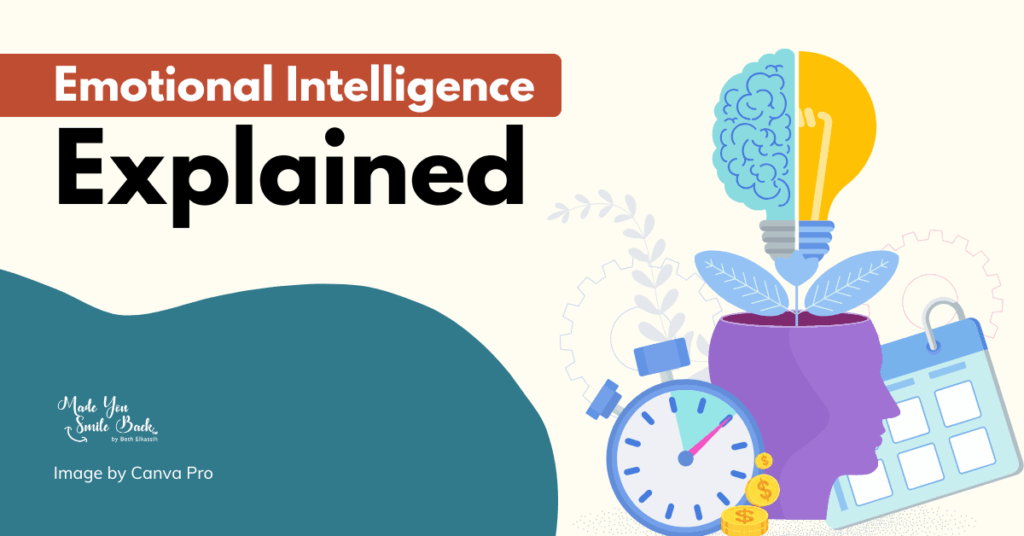
Emotional Intelligence Explained
Emotional intelligence is the ability to understand and manage emotions. It helps you connect with others and navigate social situations. Let’s explore its key parts and how to improve it.
Components of Emotional Intelligence
Emotional intelligence has several important pieces. Self-awareness is knowing your own feelings and how they affect you.
Self-regulation means controlling your emotions and reactions.
Empathy lets you understand how others feel. It’s about seeing things from their point of view.
Social skills help you communicate well and build relationships.
Motivation is another part. It drives you to reach goals and stay positive.
These pieces work together to form emotional intelligence.
Developing Emotional Intelligence
You can grow your emotional intelligence with practice. Start by paying attention to your feelings. Notice what triggers them and how you react.
Try to name your emotions. This helps you understand them better.
When you’re upset, take a moment to calm down before acting.
Listen to others without judging. Try to see things from their side. This builds empathy and improves your connections.
Practice clear communication. Say what you mean and ask others how they feel.
This avoids misunderstandings and strengthens relationships.
Set goals for yourself and work towards them. This builds motivation and confidence.
Remember, improving emotional intelligence takes time and effort, but it’s worth it.
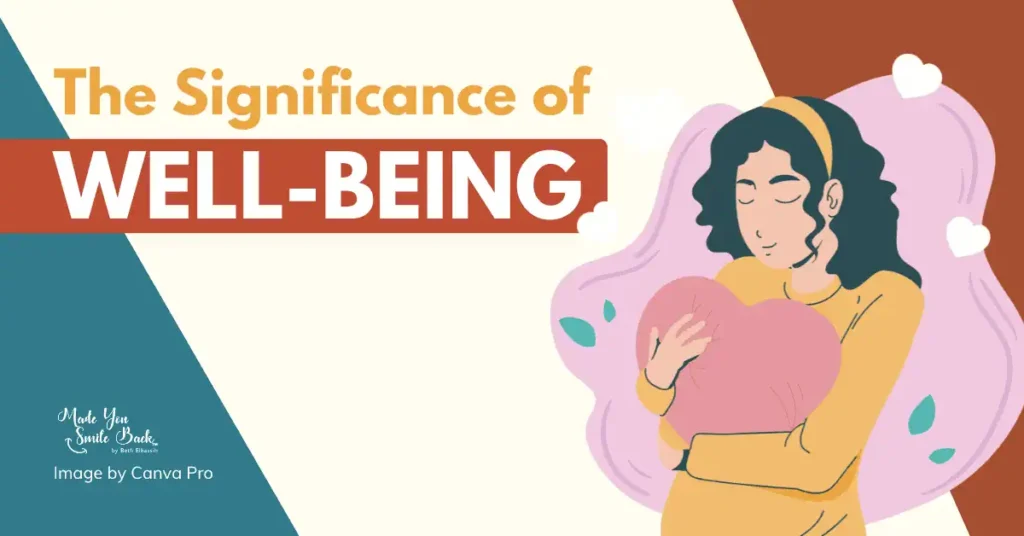
The Significance of Well-Being
Well-being plays a key role in your life. It affects your mental health and overall quality of life. Understanding what impacts your well-being can help you take steps to improve it.
Factors Affecting Well-Being
Many things can impact your well-being. Your physical health, relationships, and work all play a part.
Positive emotions and life satisfaction are key parts of well-being. Having a sense of purpose also matters.
Your workplace can affect your well-being too. Finding meaning in your job helps you feel better overall. Taking part in your community is another way to boost well-being.
Other factors include:
Well-Being and Mental Health
Your well-being and Mental Health are closely linked. Good mental health helps you cope with life’s challenges. It allows you to work well and take part in your community.
When you feel good mentally, you’re more likely to:
- Have healthy relationships
- Make good choices
- Handle stress better
Poor mental health can hurt your well-being. It may lead to feeling sad or anxious.
You might find it hard to enjoy life or do daily tasks.
Getting support for your mental health is key. This could mean talking to friends, seeing a therapist, or joining a support group.
Taking care of your mental health helps boost your overall well-being.
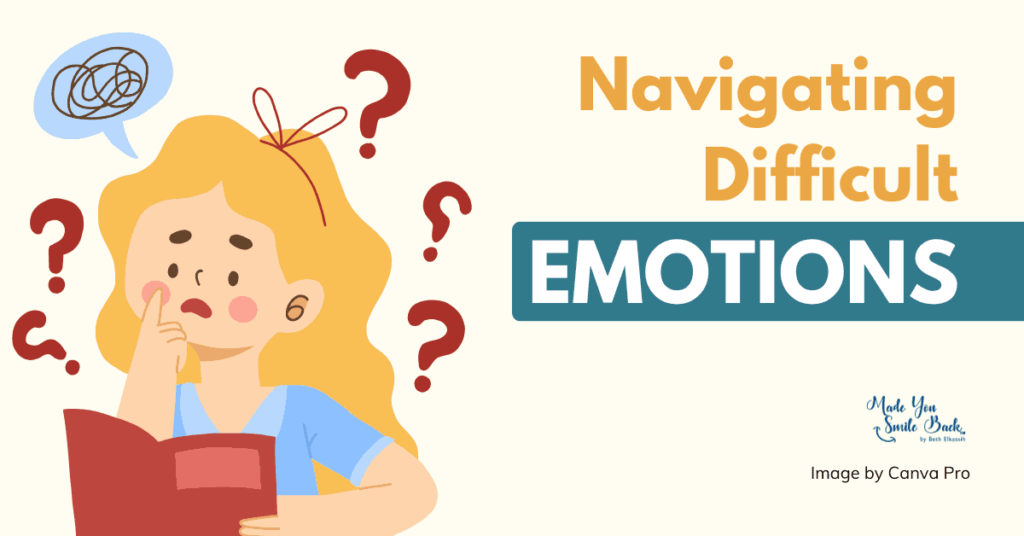
Navigating Difficult Emotions
Emotions can be tough to handle. You can learn ways to deal with your feelings and feel better. Here are some tips to help you cope.
Coping with Anxiety and Fear
When you feel anxious or scared, try to breathe slowly. Count to four as you breathe in, then count to four as you breathe out. This can help calm your body and mind.
Name your feelings to gain some distance. Say “I notice Anxiety is here” instead of “I am anxious.” This small change can make a big difference.
Make a list of things you can control. Focus on those instead of worrying about things you can’t change. This can help you feel more in charge.
Talk to someone you trust about how you feel. Sharing your fears can make them seem less scary. You don’t have to face anxiety alone.
Processing Grief and Anger
Grief and anger are normal feelings, but they can be hard to deal with. Give yourself time to feel these emotions. Don’t try to rush through them or push them away.
Write in a journal about why you feel sad or mad. This can help you understand your feelings better.
It’s okay to cry or yell into a pillow if you need to let it out.
Try exercise to release anger in a healthy way. Go for a run, hit a punching bag, or dance to loud music. Moving your body can help you feel better.
Be kind to yourself as you work through tough feelings. Treat yourself like you would a good friend.
Remember that healing takes time, and it’s okay to ask for help if you need it.
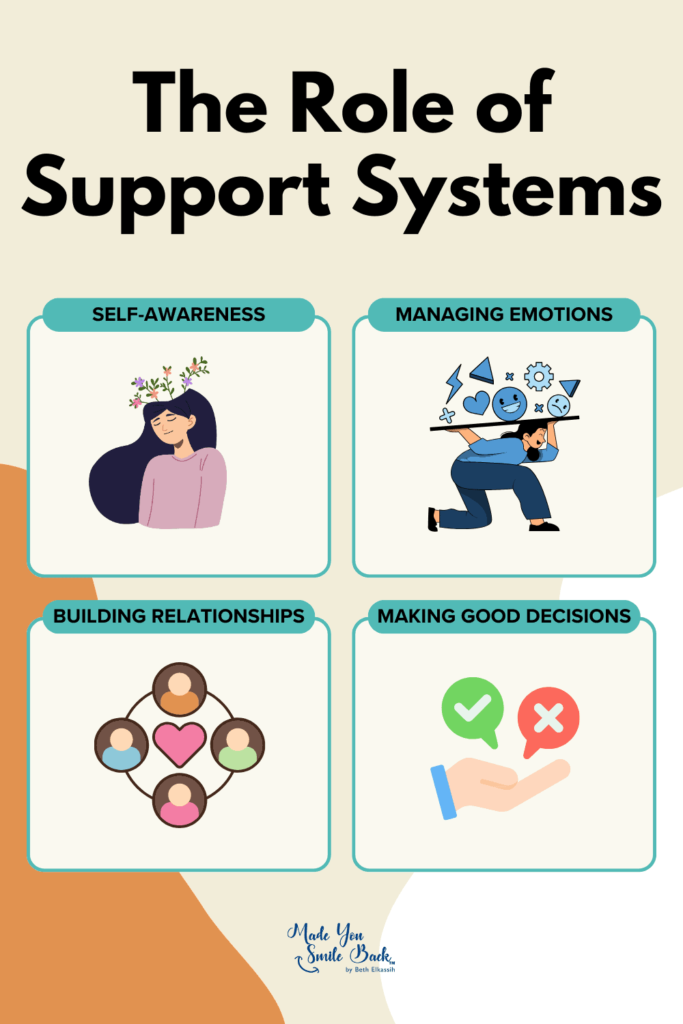
The Role of Support Systems
Support systems play a vital role in how you feel. They provide comfort, guidance, and help during tough times. Social connections and emotional skills are key parts of building strong support networks.
Finding and Offering Support
Having a good support system can make a big difference in your life. Your support network may include family, friends, coworkers, or professionals.
These people can offer emotional support and practical help when you need it.
To build your support system:
• Reach out to people you trust
• Join clubs or groups with shared interests
• Volunteer in your community
• Consider joining a support group
It’s important to give support too. Being there for others strengthens your relationships.
You can offer a listening ear, help with tasks, or just spend time together.
Social and Emotional Learning
Social and emotional learning helps you build better support systems. It teaches skills like:
- Self-awareness
- Managing emotions
- Building relationships
- Making good decisions
These skills help you connect with others and handle life’s ups and downs.
You can practice social skills by talking to new people and joining group activities.
Emotional skills involve understanding and managing your feelings. This helps you relate to others better.
You can improve by noticing your emotions and talking about them with trusted friends.
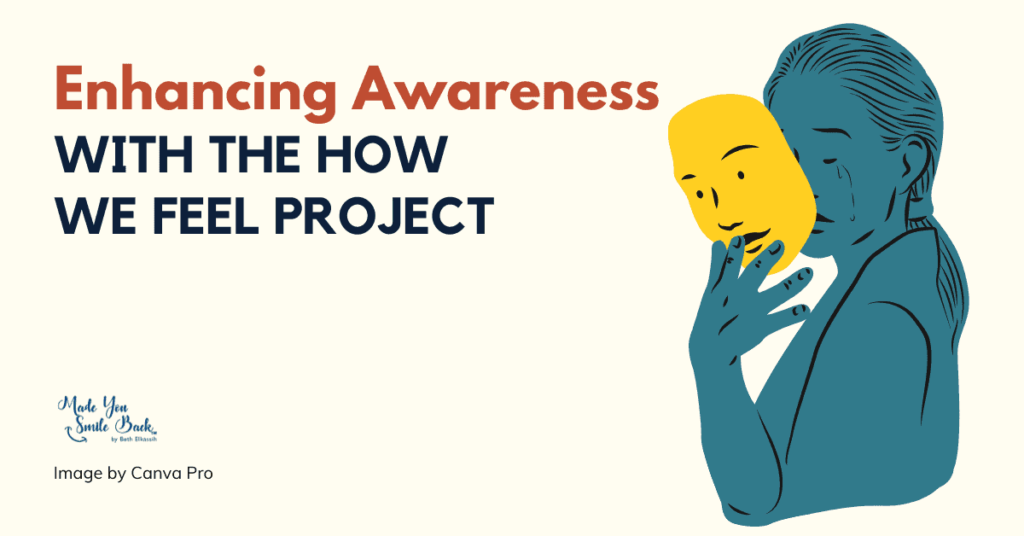
Enhancing Awareness with the How We Feel Project
The How We Feel Project offers tools to boost emotional awareness. It teaches you to recognize and name feelings, linking them to physical sensations.
Tools and Resources
The How We Feel app is a free digital journal. It helps you track emotions and spot patterns.
You can pick from a wide range of emotion words to describe how you feel.
The app asks about physical sensations too. This helps you connect feelings to bodily experiences. For example, you might notice a tight chest when anxious.
It also gives tips for managing emotions. These are based on scientific research.
The project’s team includes experts in psychology and neuroscience. They ensure the app’s content is accurate and helpful.
The Importance of Permission to Feel
Allowing yourself to feel is key to emotional health. The How We Feel Project promotes this idea.
It’s okay to have all kinds of emotions. Even tough ones like anger or sadness are normal.
The project uses concepts from RULER, an emotional intelligence program. RULER teaches that all feelings are valid and useful.
By naming your emotions, you gain control over them. This skill helps in many areas of life.
The app encourages daily check-ins. This habit builds your emotional vocabulary over time.

Frequently Asked Questions
Expressing and understanding emotions can be challenging. These questions address common concerns about identifying feelings, communicating effectively, and expanding emotional awareness.
What does it mean when I’m struggling to explain my feelings?
Difficulty explaining feelings often stems from a lack of emotional awareness or vocabulary. You may need time to process your emotions or learn new ways to describe them.
This struggle is normal and doesn’t mean your feelings are invalid. Practice self-reflection to better understand what’s happening inside you.
How can I accurately describe my emotions to someone else?
Use specific words to name your emotions. Instead of just saying “I feel bad,” try “I feel disappointed” or “I’m frustrated.”
Give examples of situations that trigger these feelings. This helps others understand your experience better.
In what ways can I communicate my feelings more effectively?
Use “I” statements to express yourself without blaming others. For example, say “I feel hurt when…” instead of “You always…”
Pay attention to your body language and tone of voice. These non-verbal cues can convey a lot about your emotions.
Practice active listening when others share their feelings too. This creates a safe space for open communication.
What are some strategies for dealing with difficulty in expressing emotions?
Write in a journal to explore your feelings privately. This can help you understand them better before sharing with others.
Try creative outlets like art or music to express emotions without words. These can be powerful tools for self-expression.
Consider talking to a therapist or counselor. They can provide techniques to improve your emotional communication skills.
Why do I have trouble identifying what I’m feeling?
You might have grown up in an environment where emotions weren’t discussed openly. This can make it hard to recognize and name feelings as an adult.
Stress or past Trauma can also affect your ability to connect with your emotions. Be patient with yourself as you learn to tune in to your feelings.
How can I improve my emotional vocabulary to better convey how I feel?
Read books or articles about emotions to learn new words for feelings. Look up emotion wheels online for a visual guide to different feelings.
Practice using more specific emotional terms in your daily life. Instead of “fine,” try words like “content,” “uneasy,” or “excited.”
Talk with friends about emotions. Hearing how others describe their feelings can expand your own emotional vocabulary.
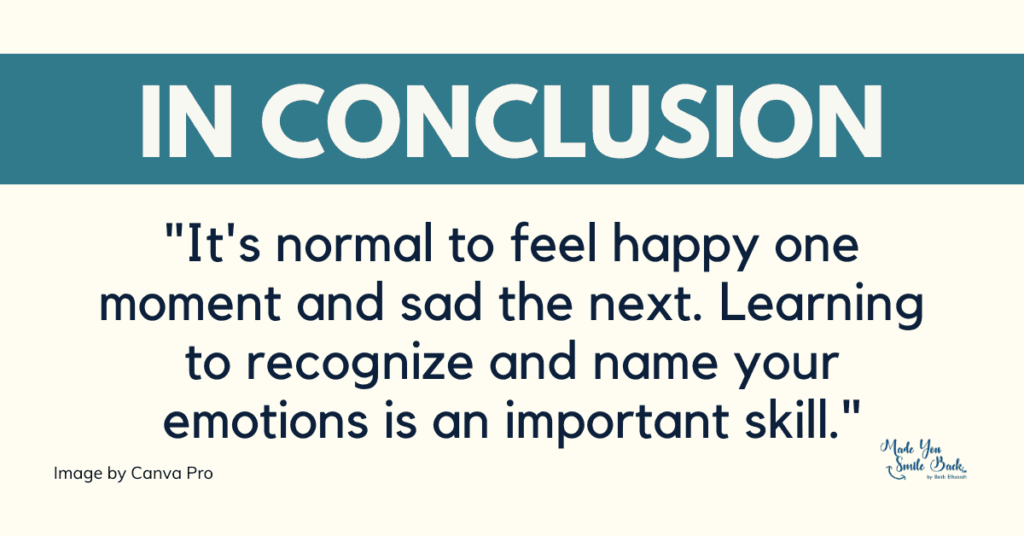
In Conclusion – Final Last Words
Feelings are complex and ever-changing. You experience a wide range of emotions throughout your day.
It’s normal to feel happy one moment and sad the next.
Learning to recognize and name your emotions is an important skill.
Remember, your feelings can change quickly. What makes you feel one way today might not tomorrow.
Talking about your feelings with others can help. You might find that many people feel the same way you do.
Sharing can bring you closer to friends and family.
.lwrp.link-whisper-related-posts{
margin-top: 40px;
margin-bottom: 30px;
}
.lwrp .lwrp-title{
}.lwrp .lwrp-description{
}
.lwrp .lwrp-list-container{
}
.lwrp .lwrp-list-multi-container{
display: flex;
}
.lwrp .lwrp-list-double{
width: 48%;
}
.lwrp .lwrp-list-triple{
width: 32%;
}
.lwrp .lwrp-list-row-container{
display: flex;
justify-content: space-between;
}
.lwrp .lwrp-list-row-container .lwrp-list-item{
width: calc(25% – 20px);
}
.lwrp .lwrp-list-item:not(.lwrp-no-posts-message-item){
}
.lwrp .lwrp-list-item img{
max-width: 100%;
height: auto;
object-fit: cover;
aspect-ratio: 1 / 1;
}
.lwrp .lwrp-list-item.lwrp-empty-list-item{
background: initial !important;
}
.lwrp .lwrp-list-item .lwrp-list-link .lwrp-list-link-title-text,
.lwrp .lwrp-list-item .lwrp-list-no-posts-message{
}@media screen and (max-width: 480px) {
.lwrp.link-whisper-related-posts{
}
.lwrp .lwrp-title{
}.lwrp .lwrp-description{
}
.lwrp .lwrp-list-multi-container{
flex-direction: column;
}
.lwrp .lwrp-list-multi-container ul.lwrp-list{
margin-top: 0px;
margin-bottom: 0px;
padding-top: 0px;
padding-bottom: 0px;
}
.lwrp .lwrp-list-double,
.lwrp .lwrp-list-triple{
width: 100%;
}
.lwrp .lwrp-list-row-container{
justify-content: initial;
flex-direction: column;
}
.lwrp .lwrp-list-row-container .lwrp-list-item{
width: 100%;
}
.lwrp .lwrp-list-item:not(.lwrp-no-posts-message-item){
}
.lwrp .lwrp-list-item .lwrp-list-link .lwrp-list-link-title-text,
.lwrp .lwrp-list-item .lwrp-list-no-posts-message{
};
}
The post How I Feel: Navigating Emotions in a Complex World appeared first on Made You Smile Back.
























